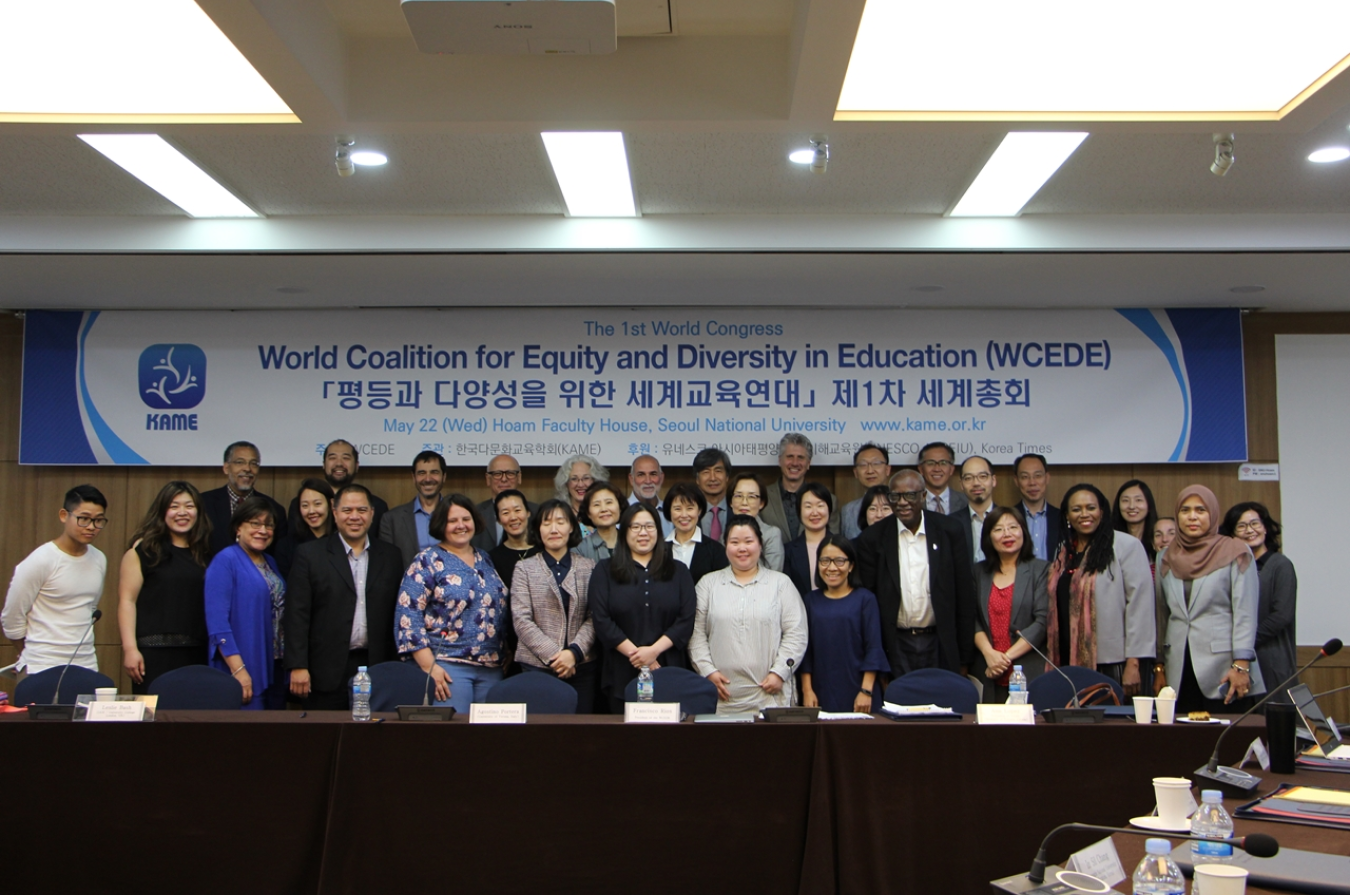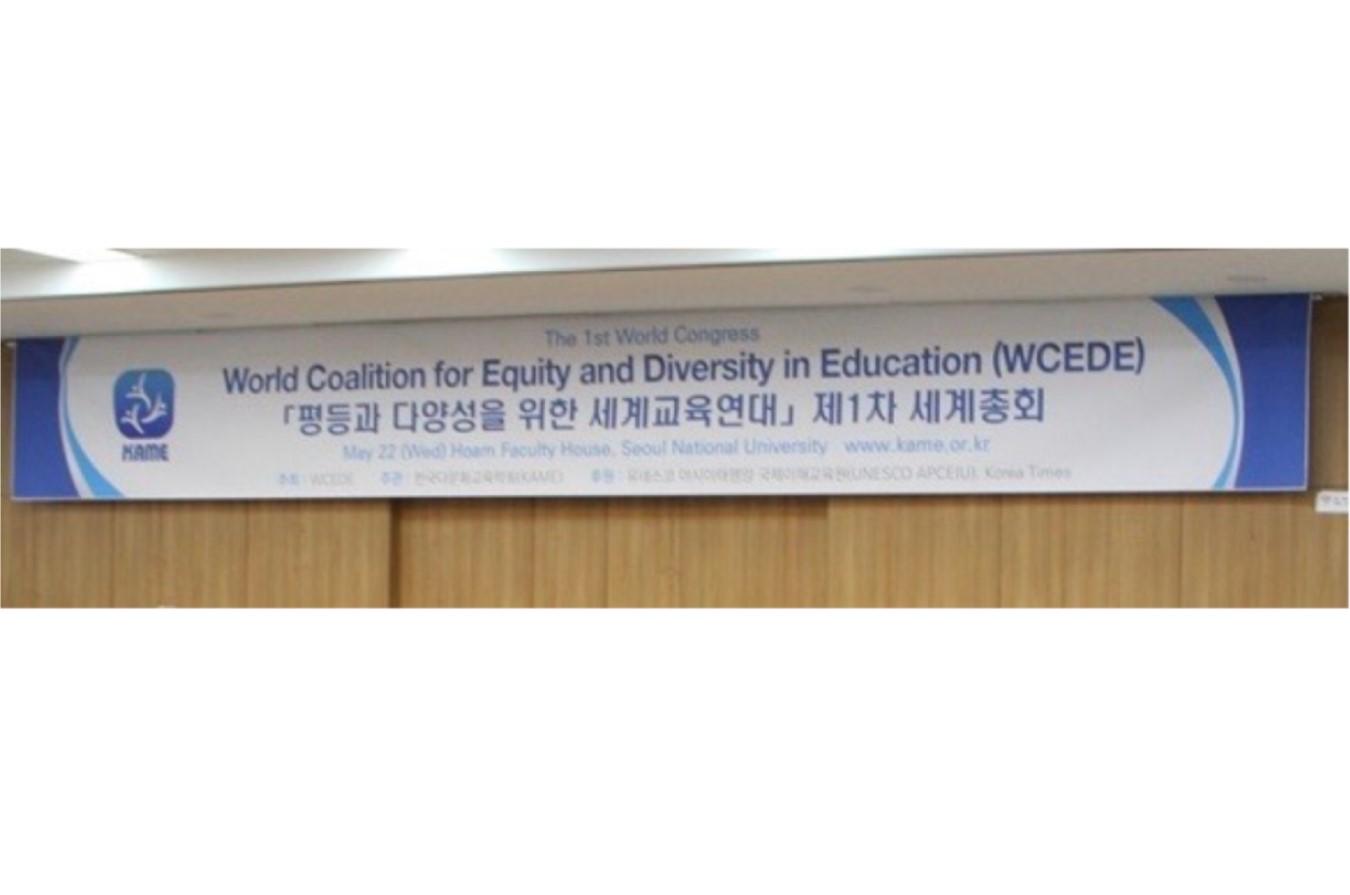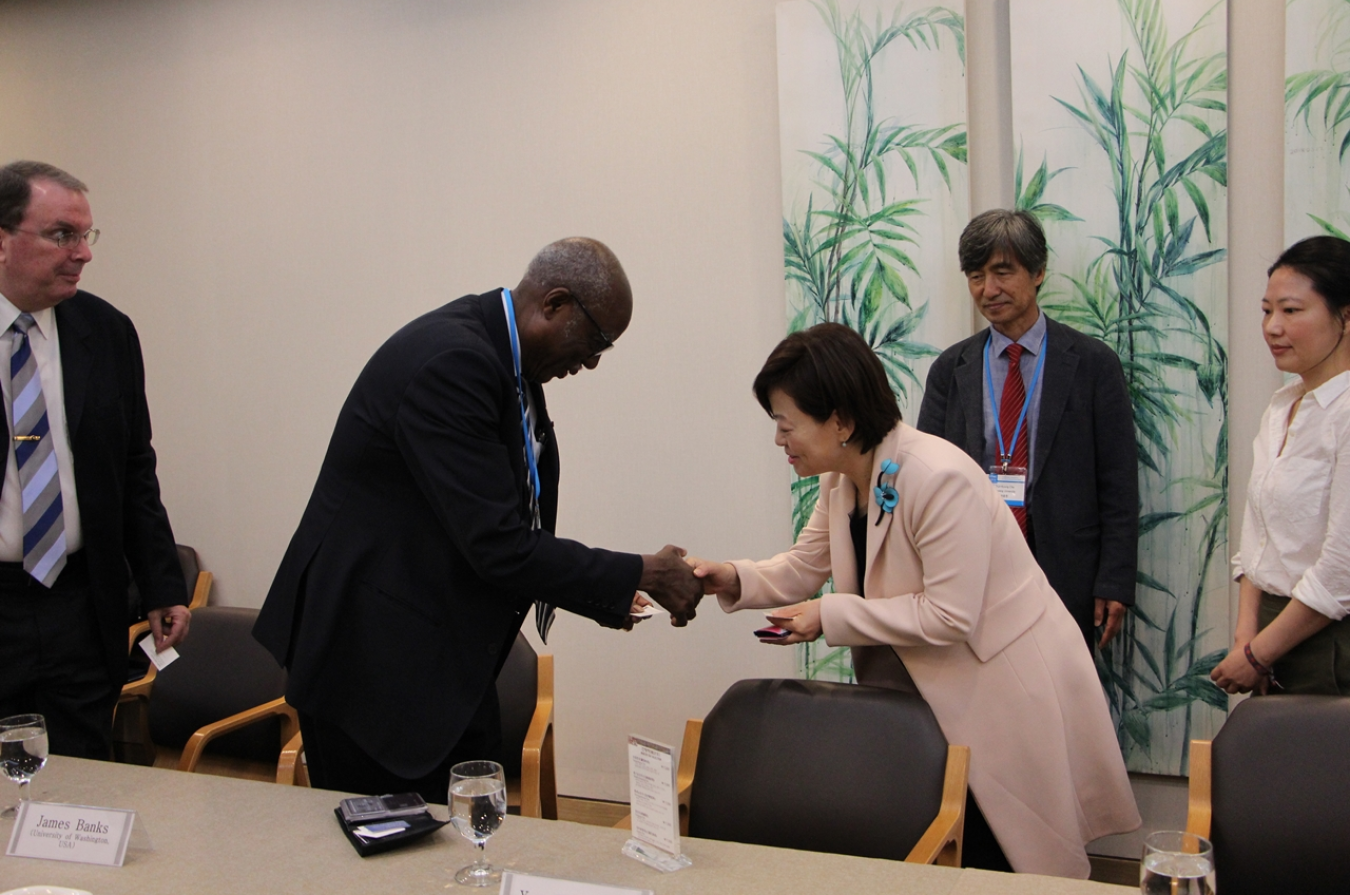Guiding Principles
PRINCIPIOS RECTORES
At the First Congress of the WCEDE in May, 2019 in Seoul, South Korea, a preamble outlining the importance of the work of the WCEDE was developed. Read that preamble here. At the same time, the Congress discussed a set of guiding principles that would anchor the work of the WCEDE
The stated principles of the World Coalition for Equity and Diversity in Education (WCEDE), honoring the belief that all people of the world are born free and equal and have the right to a quality and equitable education, advance the following core principles:
Basic Human Rights Principles1
Honoring the belief that all people are born free and equal.
Promoting education about, through and for human rights.
Affirming that individuals have the right to preserve their identity and have their identity respected and protected, within and outside of educational contexts.
Diversity Principles
Understanding, valuing and affirming the unique cultural, ethnic, and linguistic heritage/treasure of all people, including the plural identifications of individuals and the plurality of nations.
Seeing diversity not as a deficit but as an enrichment.
Promoting diversity as a dynamic and natural state of affairs.
Education Grounded in Critical Multicultural and Critical Intercultural Education Principles
Committing to an approach to education that aims to equip learners with the competences needed to contribute to positive social change through the progressive acquisition of analytical skills, knowledge and understanding.
Working toward the achievement of educational justice across the globe via empowering individuals and communities to take action to address injustices.
Rooting our work in the many different and diverse knowledge systems (epistemological frameworks), with special attention to those local knowledge systems that inform teaching and learning.
Organizational Principles
Working with and across organizations and individuals to achieve the above-mentioned goals.
Reaching out, through continuous inquiry, to organizations devoted to equity and social justice education, on multiple levels (local, national, international).
Engaging in genuine dialogue with, and collaboration between, a wide range of educational organisations and communities devoted to equity and social justice in education, with the understanding that holistic approaches are needed that include other sectors of society.
1 These principles are inspired by the UDHR as well as related United Nations and UNESCO developed declarations.




